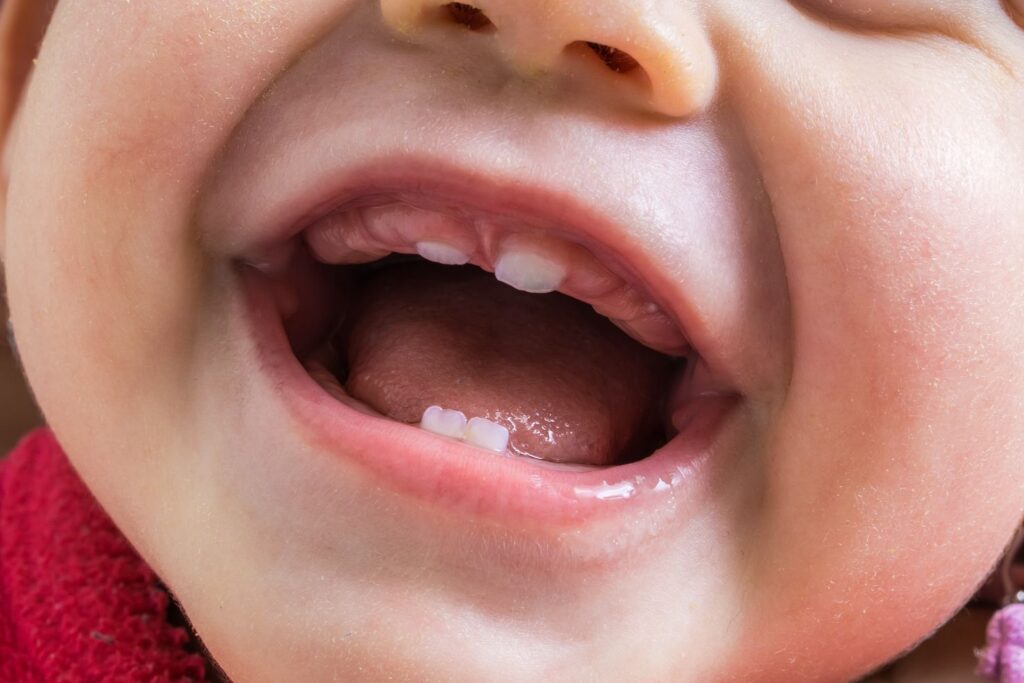
Do you have an infant at home between four months to a year old who has been acting more irritable than usual? If they scream and cry excessively, drool more, and want to put everything into their mouths, it might be due to their primary teeth pushing toward the surface of their gums.
This transition can be difficult for everyone involved because your baby’s aches tend to keep them up at night. Continue reading to learn 3 helpful hints to help them feel calmer and more comfortable during teething so your family can get some much-needed rest!
Tip #1: Gently Numb Their Gums
Have you ever had a toothache that kept you awake at night? One easy and effective way to find relief is by pressing a cold compress to that side of your face for 15 minutes at a time to induce a temporary numbing sensation.
Your infant is too small to use an ice pack, but you can provide a well-earned reprieve by providing chilled objects that are safe for them to chew on. For example, you can leave a damp washcloth in the freezer until it’s stiff, then gently wrap it around a finger to massage your little one’s gums. You can also fill a mesh feeder with their favorite baby food, let it freeze, and then offer it to your child to assuage their sore connective tissues.
Tip #2: Prevent Rash Pain
If your infant is drooling excessively from teething, they’re not alone. An estimated 92% of babies produce additional saliva that can leave an uncomfortable rash on the skin around your child’s mouth, which can leave them feeling extra cranky.
You can address it by using a soft bib to gently wipe away excess spit periodically. You can also try placing an ointment on their chin, like petroleum jelly or Aquafor, to create a protective barrier that prevents irritation.
Tip #3: Try White Noise
Sometimes, little minds need a distraction from teething aches to drift off at night (or naptime) successfully. You might try placing a white noise machine in their room and putting it on a low volume to soothe them. There are many different brands, sizes, and types available; you might even find one that doubles as a night-light as a bonus!
If that doesn’t work, you might try playing different types of music for them until you find a sound or style that seems to calm them. Although every baby is different, many respond well to soft lullabies or classical tunes playing in the background.
If your child is exhibiting signs of teething, it likely won’t be long before you see their first pearly whites clear their gums. When they do, you should contact their pediatric dentist to schedule their first checkup!
Meet the Author
Dr. Matt Strumpf enjoys helping children of all ages build and maintain their healthiest, happiest smiles. He earned his dental degree from Midwestern University and then completed pediatric specialty training at the University of Illinois, Chicago. Today, he’s an active member of the American Academy of Pediatric Dentistry and provides a complete menu of services to guide still-developing teeth and gums. He can help with everything from basic preventive care to more complex procedures, and strives to make your child’s experience both fun and educational. If you’re concerned about teething or your baby’s first tooth has arrived, you can request an appointment on the website or call (651) 450-6111.
